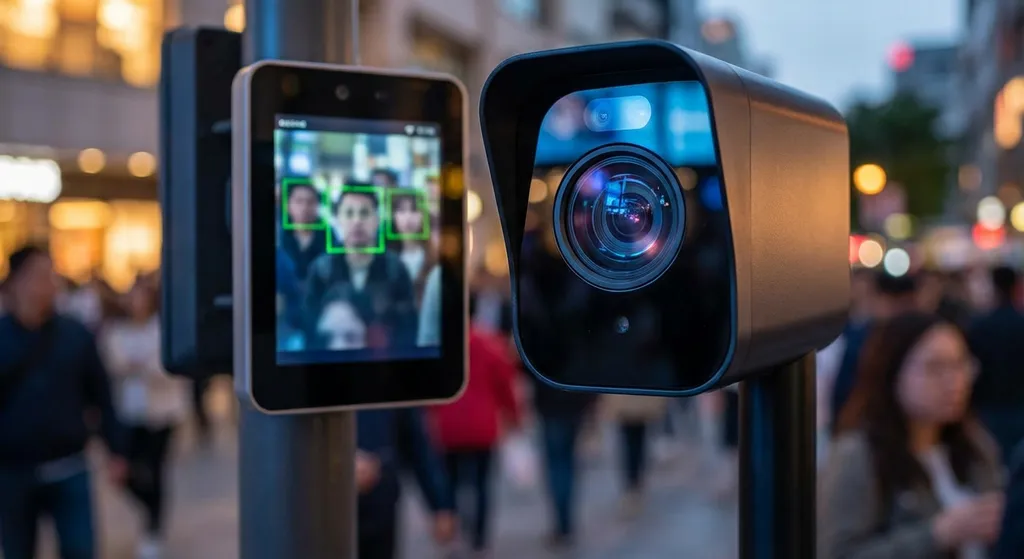🌐 Navigating the Complex World of Privacy and Surveillance
How do we keep our personal data safe while living in a hyper‑connected world?
This guide explores the technical, ethical, and societal layers of privacy and surveillance, giving you the tools to think like a policy‑maker, a technologist, and a responsible digital citizen.
Every swipe, click, and “like” creates a data trail that can be harvested, analysed, and sometimes misused. At the same time, governments and companies argue that surveillance is essential for security, efficiency, and innovation. Understanding this tug‑of‑war requires a blend of Cryptography, Legal Theory, and Social Philosophy—all topics you’ll encounter in high‑school computer science, civics, and philosophy classes.
1. Foundations of Privacy & Surveillance
What Is Privacy?
Privacy is the Right To Control the collection, use, and dissemination of one’s personal information. In legal terms, it is often framed by concepts such as Data Minimization (collect only what is necessary) and Purpose Limitation (use data only for the stated reason).
What Is Surveillance?
Surveillance refers to systematic monitoring of individuals or groups, typically using Sensor Networks, Metadata Aggregation, or AI‑driven Pattern Recognition. While “surveillance” can sound ominous, it also underpins services like traffic‑flow optimisation and emergency response.
Evidence Snapshot
- According to a 2023 Pew Research Center survey, 81 % of Americans feel the government should Do More to protect online privacy, yet 71 % also support Some Level Of Monitoring for national security.
- The European Union’s General Data Protection Regulation (GDPR) has reduced data‑breach costs by an average of €4.6 million per incident for compliant firms (Eurostat, 2022).
2. Technologies Shaping the Landscape
A. Biometrics & Digital Fingerprints
Facial‑recognition algorithms, voice‑print analysis, and iris‑scan systems can uniquely identify individuals in seconds.

Implication: While useful for unlocking phones, these systems can be deployed for mass tracking without consent, raising concerns about Algorithmic Bias—studies show higher error rates for darker‑skinned faces.
B. Internet of Things (iot) Sensors
Smart thermostats, wearables, and connected toys constantly transmit data to cloud servers.

Implication: Aggregated sensor data can reveal intimate details—sleep patterns, health metrics, even political leanings—if combined with Machine‑learning inference models.
C. Cryptography & Anonymisation
Techniques like End‑to‑end Encryption, Zero‑knowledge Proofs, and Differential Privacy empower users to protect data while still allowing aggregate analysis.
Evidence: WhatsApp’s implementation of the Signal Protocol reduced interception rates to <0.01 % in independent audits (2021).
3. Ethical Debates & Global Perspectives
| Perspective | Core Argument | Notable Example |
|---|---|---|
| Government | Surveillance is a Public‑interest tool for crime prevention and pandemic control. | China’s “Sharp Eyes” program integrates CCTV with AI to predict violent incidents. |
| Corporations | Data collection fuels Personalisation and Economic Growth; privacy can be managed via consent frameworks. | Facebook’s targeted‑ads engine generates $84 Billion in revenue (2023). |
| Civil Society | Unchecked surveillance erodes Autonomy, Dignity, and can lead to Authoritarian Drift. | The Electronic Frontier Foundation (EFF) campaigns against facial‑recognition bans in public spaces. |
| International Bodies | Harmonising privacy standards protects Human Rights across borders. | The UN’s “Right to Privacy” resolution (2022) urges member states to adopt Data‑protection Safeguards. |
Philosophical Lens
- Utilitarianism: Does the greatest good (e.g., reduced crime) outweigh individual privacy losses?
- Deontological Ethics: Are there inviolable rights to privacy regardless of outcomes?
- Social Contract Theory: What implicit agreements do citizens make when they consent to digital services?
4. Careers at the Intersection of Ai, Ethics, and Privacy
| Role | Core Responsibilities | Required Skills |
|---|---|---|
| Data Privacy Officer (DPO) | Ensure compliance with GDPR, CCPA; conduct privacy impact assessments. | Legal acumen, risk analysis, knowledge of Privacy‑by‑design. |
| Ethical AI Researcher | Design algorithms that mitigate bias, embed fairness constraints. | Machine learning, philosophy of technology, statistical auditing. |
| Cyber‑law Attorney | Litigate data‑breach cases, draft legislation, advise on surveillance statutes. | Constitutional law, tech policy, negotiation. |
| Security Engineer (Cryptography) | Build and audit encryption protocols, secure communication pipelines. | Mathematics, network security, programming (Rust, Go). |
| Public Policy Analyst | Evaluate surveillance programs, propose regulatory frameworks. | Data analytics, stakeholder engagement, policy drafting. |
Tip: Many universities now offer Dual Majors in Computer Science + Philosophy or Law + Information Systems—perfect pathways for the privacy‑savvy teen.
Simple Activity: “your Digital Footprint Map”
- Log In to any social media platform you use (e.g., Instagram).
- Export the data file (most platforms have a “Download Your Data” option).
- Identify three categories of information (photos, location tags, messages).
- Create a visual map (hand‑drawn or using a free tool like Canva) that shows where each data type could be accessed (e.g., “Third‑party ad network,” “Cloud storage provider,” “Government agency”).
- Reflect: Write a 150‑word paragraph on one surprising insight—perhaps a piece of data you never thought could be shared beyond the platform.
Outcome: You’ll see how everyday actions create a traceable data trail that others can analyse, monetise, or even weaponise if left unchecked.